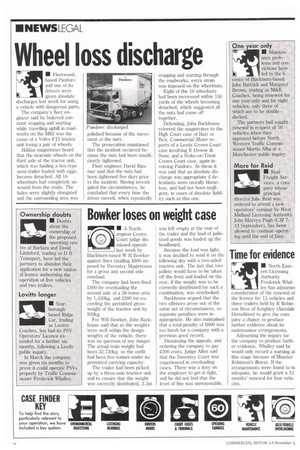Bowker loses on weight case
Page 28

If you've noticed an error in this article please click here to report it so we can fix it.
• A Northampton Crown Court judge dismissed appeals last week by Blackburn-based W H Bowker against fines totalling 2600 imposed by Daventry Magistrates for a gross and second axle overload.
The company had been fined .2400 for overloading the second axle of a 38-tonne artic by 1,430kg, and 2200 for exceeding the permitted gross weight of the tractive unit by 920kg.
For WH Bowker, John Back.house said that as the weights were well within the design weights of the vehicle, there was no question of any danger. The actual train weight had been 32,720kg, so the outfit had been five tonnes under its permitted carrying capacity.
The trailer had been picked up by a three-axle tractive unit and to ensure that the weight was correctly distributed, 2.3m was left empty at the rear of the trailer and the load of palletised goods was loaded up the headboard.
Because the load was light, it was decided to send it on the following day with a two-axled tractive unit. The fact that two pallets would have to be taken off the front and loaded on the rear, if the weight was to be correctly distributed for such a combination, was overlooked.
Backhouse argued that the two offences arose out of the same set of circumstances, so separate penalties were inappropriate. He also maintained that a total penalty of 2600 was too harsh for a company with a previous good record.
Dismissing the appeals, and ordering the company to pay £200 costs, Judge Allen said that the Daventry Court was experienced in overloading cases. There was a duty on the employer to get it right, and he did not feel that the level of fine was unreasonable.


























































































































































